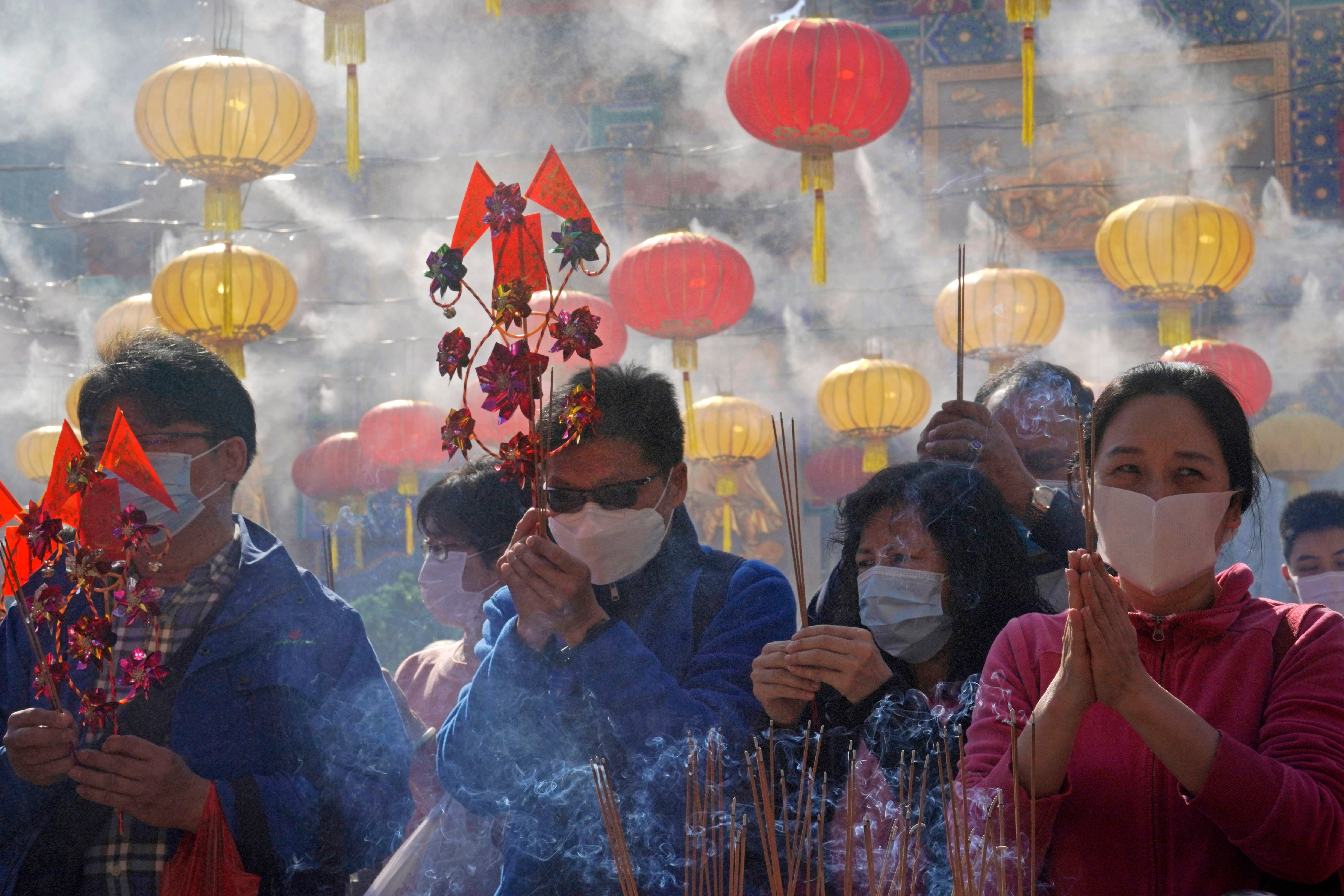Chinese TV features blackface performers in New Year's gala
Chinese state TV included dancers in blackface depicting Africans during a broadcast celebrating the Lunar New Year

Your support helps us to tell the story
From reproductive rights to climate change to Big Tech, The Independent is on the ground when the story is developing. Whether it's investigating the financials of Elon Musk's pro-Trump PAC or producing our latest documentary, 'The A Word', which shines a light on the American women fighting for reproductive rights, we know how important it is to parse out the facts from the messaging.
At such a critical moment in US history, we need reporters on the ground. Your donation allows us to keep sending journalists to speak to both sides of the story.
The Independent is trusted by Americans across the entire political spectrum. And unlike many other quality news outlets, we choose not to lock Americans out of our reporting and analysis with paywalls. We believe quality journalism should be available to everyone, paid for by those who can afford it.
Your support makes all the difference.Chinese state TV included dancers in blackface depicting Africans during a national broadcast Thursday as Asia welcomed the lunar Year of the Ox with subdued festivities amid travel curbs to contain renewed coronavirus outbreaks.
The “African Song and Dance” performance came at start of the Spring Festival Gala, one of the world’s most-watched TV programs. It included dancers in African-style costumes and dark face makeup beating drums.
The five-hour annual program, which state TV has said in the past is watched by as many as 800 million people, also included tributes to nurses, doctors and others who fought the coronavirus pandemic that began in central China in late 2019.
Festivities for the holiday, normally East Asia's busiest tourism season, are muted after China, Vietnam, Taiwan and other governments tightened travel curbs and urged the public to avoid big gatherings following renewed virus outbreaks.
China's ruling Communist Party tries to promote an image of unity with African nations as fellow developing economies. But state broadcaster China Central Television has faced criticism over using blackface to depict African people in past New Year broadcasts.
On Twitter, Black Livity China, a group for people of African descent who work in or with China, called the broadcast “extremely disappointing.” It noted CCTV’s 2018 Spring Festival Gala featured performers in blackface with a monkey.
“We cannot stress enough the impact scenes such as these have on African and Afro-diasporic communities living in China,” the group said.
Elsewhere in China, Buddhist and Daoist temples that usually are packed with worshippers for the holiday were closed. Streets in major cities were largely empty.
The government appeal to China's public to avoid travel is expected to hurt airlines, hotels and gift sellers. But economists say the overall impact might be limited if factories, shops and farms keep operating instead of shutting down for two weeks as they usually do.
The Commerce Ministry said it found 48 million more people in Chinese cities planned to celebrate where they live this year instead of traveling to their hometowns or tourist spots.
Departures from Beijing’s two major airports Wednesday were down 75% from last year, the government reported.
In Taiwan, merchants said this year's sales are up 10%-20% because Taiwanese celebrated at home with family dinners instead of traveling abroad.
“Business this year is good. We have even more people,” said a sausage vendor in the capital, Taipei, who would give only his surname, Tsai. “People stay home and prepare food for year-end dinner to share with friends and family.”
___
AP journalist Taijing Wu in Taipei, Taiwan, contributed to this report.
Subscribe to Independent Premium to bookmark this article
Want to bookmark your favourite articles and stories to read or reference later? Start your Independent Premium subscription today.